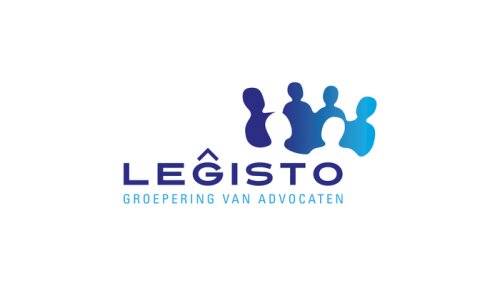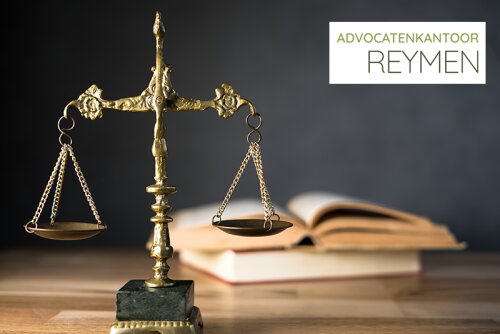Best Structured Finance Lawyers in Belgium
Share your needs with us, get contacted by law firms.
Free. Takes 2 min.
Or refine your search by selecting a city:
List of the best lawyers in Belgium
About Structured Finance Law in Belgium
Structured finance is a complex field that plays a key role in Belgium's financial sector. It involves the creation of financial instruments and solutions that help organizations access capital, manage risk, and optimize their financial resources. In Belgium, structured finance may include securitization, asset-backed securities, collateralized debt obligations, and a variety of tailored funding structures involving legal entities, trusts, and special purpose vehicles (SPVs). Belgium's legal framework for structured finance is shaped by national laws, European Union directives, and international best practices, all designed to ensure robust risk management, investor protection, and transparency in financial transactions.
Why You May Need a Lawyer
Structured finance transactions can be intricate and often involve multiple parties, significant capital, and detailed regulatory requirements. You may need a lawyer specialized in structured finance in Belgium if you are:
- Setting up a securitization structure or SPV for asset pooling and funding
- Negotiating or reviewing structured finance agreements, such as loan facilities, swaps, or derivatives
- Considering issuing or investing in asset-backed securities or other structured products
- Ensuring compliance with Belgian regulatory requirements and European Union rules
- Facing cross-border structured finance transactions or investments
- Involving public sector entities in financial structuring
- Mitigating risks related to bankruptcy, insolvency, or restructuring of complex financing structures
- Resolving disputes or litigation arising from structured finance transactions
Legal assistance is essential because small mistakes in structuring or documentation can have significant financial and legal consequences. A specialized lawyer can help you navigate the regulatory landscape, negotiate favorable terms, and ensure your transaction is both compliant and secure.
Local Laws Overview
Belgium’s legal environment for structured finance is shaped by a blend of domestic and European regulations. Some of the key aspects include:
- Securitization Law: Belgium adopted a Law on Securitization in 2018 which regulates the creation and operation of securitization vehicles, allows for bankruptcy remoteness, and sets out investor protection mechanisms.
- Special Purpose Vehicles (SPVs): Belgium permits the creation of SPVs as separate legal entities designed to isolate financial risk. These vehicles operate under specific regulatory oversight.
- European Union Regulations: Belgium, as an EU member, implements European regulations such as the Securitization Regulation, Capital Requirements Regulation (CRR), and Markets in Financial Instruments Directive (MiFID).
- Taxation: The taxation regime for structured finance vehicles can be favorable in Belgium. However, careful structuring is required to benefit from tax exemptions and avoid unexpected liabilities.
- Bankruptcy and Insolvency: Belgian law offers specific protections to prevent the assets of an SPV from being attached in case of bankruptcy of the originator, offering bankruptcy remoteness.
Legal professionals can advise on the continually evolving regulatory landscape, helping clients comply with anti-money laundering requirements, data protection laws, and other compliance obligations.
Frequently Asked Questions
What is structured finance?
Structured finance refers to sophisticated financial techniques that allow institutions to raise capital and manage risk by pooling assets and creating more complex investment instruments, such as asset-backed securities or collateralized obligations.
Is structured finance regulated in Belgium?
Yes, structured finance in Belgium is governed by specific national laws such as the 2018 Law on Securitization, as well as European Union legislation that applies to financial markets and investment products.
What is an SPV and why is it important?
A Special Purpose Vehicle (SPV) is a separate legal entity created to isolate and manage financial risk, often used in securitization. It ensures that the assets involved in a structured finance transaction are protected from the bankruptcy of the originator.
Do I need approval from Belgian authorities for a securitization transaction?
Generally, securitization vehicles need to comply with filing and transparency requirements as outlined by Belgian regulators. Certain transactions may require approval or registration with financial supervisory bodies.
What are the main risks in structured finance?
Risks can include credit risk, legal risk, operational risk, and market risk. Structured finance lawyers help identify, mitigate, and allocate these risks contractually.
How are structured products taxed in Belgium?
Tax treatment depends on the structure, the parties involved, the type of assets, and the residence of investors. Legal and tax advice is important to optimize tax outcomes and ensure compliance.
Can foreign entities participate in Belgian structured finance transactions?
Yes, Belgium is an attractive jurisdiction for cross-border structured finance and does not generally restrict participation by foreign entities, though all applicable regulatory and tax requirements must be fulfilled.
How does Belgium ensure investor protection in structured finance?
Investor protection is addressed through disclosure requirements, regulatory oversight by the Financial Services and Markets Authority (FSMA), and adherence to EU regulations ensuring transparency and risk management.
What legal documentation is required in a typical structured finance deal?
Documentation may include loan agreements, asset transfer agreements, offering documents, servicing agreements, and security documentation. Tailored legal drafting is crucial to ensure enforceability and compliance.
How do I choose a lawyer for structured finance matters in Belgium?
Look for lawyers or law firms with proven expertise in financial law, especially structured finance, securitization, and regulatory compliance. Professional bodies like the Belgian Bar or directories of financial law specialists are a good place to start.
Additional Resources
If you need more information or support in the field of structured finance in Belgium, the following resources may be helpful:
- Financial Services and Markets Authority (FSMA) - the main regulator for financial markets in Belgium
- National Bank of Belgium (NBB) - oversight of banking and financial stability
- Belgian Ministry of Finance - for official publications on regulation and tax
- Belgian Association of Asset Securitization - industry updates and best practices
- Publications and guidance notes from leading Belgian and international law firms on financial structures
Next Steps
If you are considering a structured finance transaction in Belgium or need legal advice in this area, follow these steps:
- Clearly define your needs and objectives related to structured finance, whether you are seeking funding, investing, or arranging a new structure.
- Collect all relevant information and documentation about the assets, entities involved, and the intended transaction structure.
- Research and identify lawyers or law firms that specialize in structured finance and financial regulation in Belgium.
- Schedule a consultation to explain your project and seek preliminary advice. Be prepared to discuss your objectives, timelines, and concerns.
- Work collaboratively with your lawyer to assess risks, structure the transaction, and ensure regulatory compliance at every stage.
Taking these steps with qualified legal professionals will help you navigate the complexities of structured finance and achieve your financial and business goals securely and compliantly.
Lawzana helps you find the best lawyers and law firms in Belgium through a curated and pre-screened list of qualified legal professionals. Our platform offers rankings and detailed profiles of attorneys and law firms, allowing you to compare based on practice areas, including Structured Finance, experience, and client feedback.
Each profile includes a description of the firm's areas of practice, client reviews, team members and partners, year of establishment, spoken languages, office locations, contact information, social media presence, and any published articles or resources. Most firms on our platform speak English and are experienced in both local and international legal matters.
Get a quote from top-rated law firms in Belgium — quickly, securely, and without unnecessary hassle.
Disclaimer:
The information provided on this page is for general informational purposes only and does not constitute legal advice. While we strive to ensure the accuracy and relevance of the content, legal information may change over time, and interpretations of the law can vary. You should always consult with a qualified legal professional for advice specific to your situation.
We disclaim all liability for actions taken or not taken based on the content of this page. If you believe any information is incorrect or outdated, please contact us, and we will review and update it where appropriate.
Browse structured finance law firms by city in Belgium
Refine your search by selecting a city.















